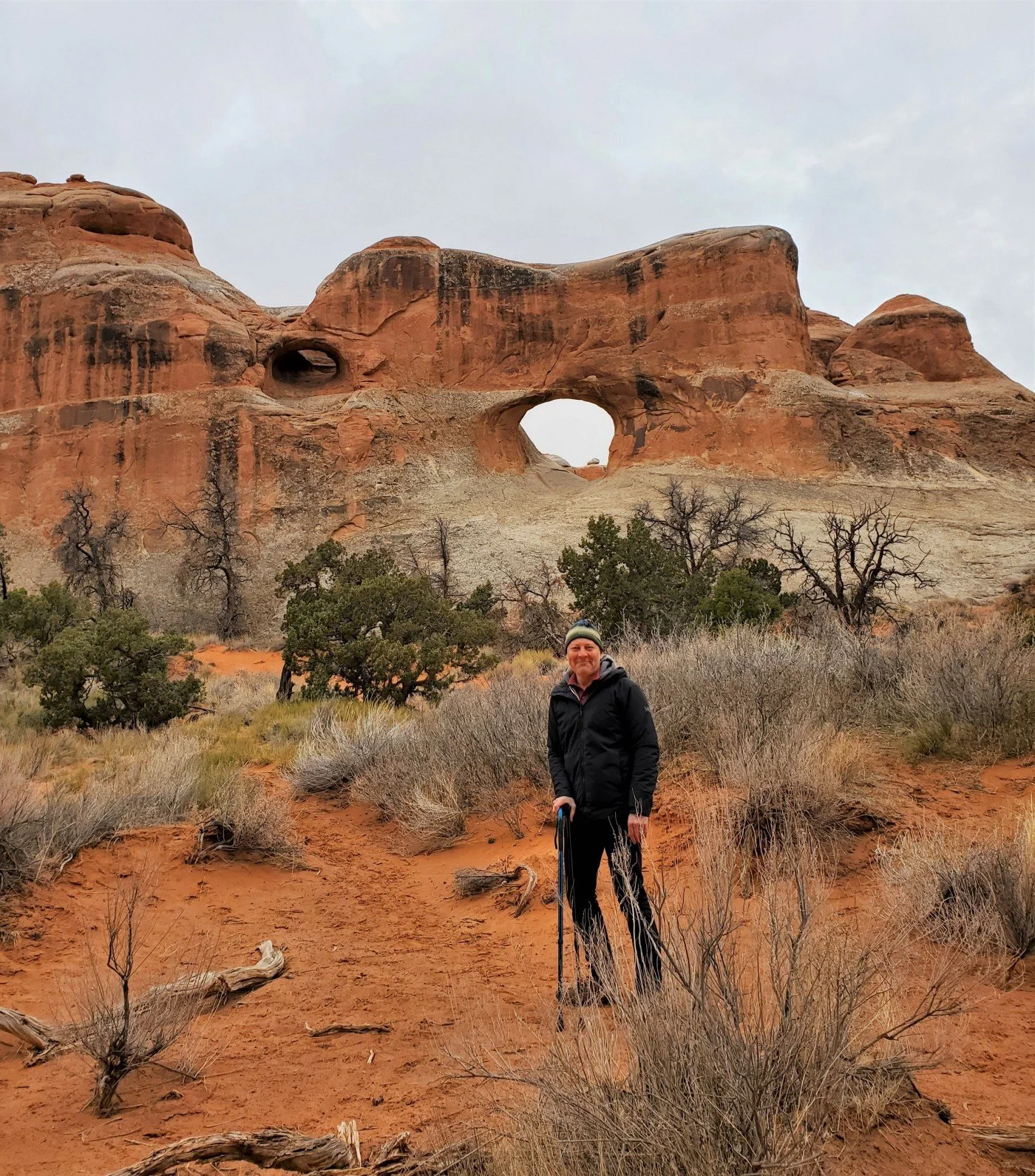The FDA-Cleared Cionic Neural Sleeve Overcomes Disability in Real-Time
/It Is Time to Bring Machine Intelligence to the Human Body
Jeremiah’s daughter Sofia in the video on the right is one of almost 1 million Americans living with cerebral palsy. Sofia was 18 months old when she received her diagnosis. When doctors said “disability”, Jeremiah and his wife thought, “The time is now for technology to be an enabler for every ability…”.
Meet Jeremiah Robison, Founder and CEO of CIONIC – one of our LDV Capital portfolio companies. He has a 25-year entrepreneurial career at the intersection of sensing, machine learning, and the human body.
We invested in Jeremiah & CIONIC in 2018 when the company was incorporated, Jeremiah was a one-person team, and there was only an initial working alpha prototype of a small piece of the vision. Fast forward almost 4 years of incredible progress with limited resources and an amazing team. The company recently received FDA clearance, improved mobility in 94% of participants in their first research study, and sold out their first planned manufacturing batch in a matter of weeks driven by word of mouth.
“I’m walking like myself for the first time in a decade with the Cionic Neural Sleeve,” said Julie, a test pilot with an MS Diagnosis.
Jeremiah Robison speaking at our LDV Vision Summit (May 22, 2019) © Robert Wright
For Jeremiah, CIONIC is a truly personal story: his daughter’s CP diagnosis fueled a mission to empower all those with mobility impairments to move with more freedom and control.
"I witnessed firsthand the lack of effective solutions available to people with mobility challenges. I knew that the same technological advances that had propelled other industries forward (self-driving cars, reusable rockets, etc.) could also be used to understand human mobility and augment movement in real-time, providing personalized therapeutics tailored to individual mobility patterns", said Jeremiah Robison.
14% of Americans are living with mobility impairments, which prevent them from living fully independent lives. With an aging population, that number is expected to swell to 20% with an overall disease burden on the American economy of $1 trillion by 2050.
Increased lifespans and lower birth rates mean that if we don't find solutions, 1 in 5 people will be using walkers, crutches, canes, and wheelchairs.
The Brilliant Team to Build the Future of Bionics
The team is celebrating the FDA clearance of the Cionic neural sleeve (Feb 14, 2022)
Jeremiah started his journey at Apple building neural networks for handwriting recognition. Jeremiah went on to lead the development of the first mobile HTML browser that shipped on >1B phones. He earned his stripes in scalability and entrepreneurship while working as CTO of Max Levchin's company Slide which was sold to Google. He sold his first startup to Jawbone, where he then spent 8 years building a body-worn sensing system to provide continuous noninvasive health diagnostics. Through success and failure, Jeremiah learned how to design algorithms that could decipher the broad nuances of human physiology, engineer hardware that could withstand the abuse of 24/7 wear, scale data systems to millions of users, and most importantly build teams that could sustainably deliver.
To overcome disability through precision bionics and advanced AI algorithms, Jeremiah founded a medical technology startup to analyze and augment neuromechanical function. In simple terms, their platform interprets the signals from the brain and turns them into actionable changes to the body. Their devices push the boundaries of integrated hardware, software, and predictive modeling to provide functional wearability and personalized intelligence.
Who Else Is on the Team?
Mihai Ionescu, Head of Hardware, has always been interested in the mapping of biomechanics to engineering systems that will enhance function and improve gait. Mihai is responsible for product specs for the Neural Sleeve, bill of materials definition, material sourcing, manufacturing timelines, and certification processes. He works in tandem with domestic and international resources to develop a design for manufacturability, reliability and cost-effectiveness.
Dr. Rebecca Webster is resident clinical operations leader. She is passionate about accessibility for all people, and has spent her career focused on acute rehabilitation, acute care neurology, orthopedics and cardiac rehabilitation. Check out her recent articles: “The Secret to Rebuilding Myelin May Be Simpler Than We Think” and “Using Bionic Clothing to Improve Foot Drop”.
Domenico Pisaturo is Chief Product Officer leading the design efforts for the company’s lightweight, durable bionic clothing. He also builds soft goods prototypes to support research efforts and validate product decisions that are made within the company. A full stack designer, Domenico brings a depth and breadth of experience to the challenge of creating bionic clothing with form and function.
The First Bionic Clothing For Mobility Impairment
Since the inception of his company, Jeremiah and his team have been working on the Cionic Neural Sleeve, which combines
sensing, understanding what the body is doing;
prediction; understanding what it's capable of in real-time & what will happen next;
augmentation: actuating the body.
This piece of bionic clothing is able to sense the muscle firing and the signal from the brain to the body, as well as the outcome, limb orientation and how the person is moving through space. The deep tech team combined that with a programmable stimulation array to assist in neurological and orthopedic motor impairments. As a result, their first product includes gait assist.
What Their Customers Say
In 2021, CIONIC’s team had some amazing advancements toward superpowering the human body. Their trials in San Francisco, California and Cleveland, Ohio for stroke, multiple sclerosis, cerebral palsy, and spinal cord injury examined the efficacy of the Cionic Neural Sleeve to assist individuals with foot drop. Participants were outfitted with the Neural Sleeve on their most impacted leg.
With the Cionic Neural Sleeve,
94% of participants showed a positive increase in dorsiflexion at heel strike;
88% of participants showed a positive improvement in ankle inversion during the swing;
Their gait assist trial demonstrated an average combined improvement of 9° across all participants.
The team received amazing reviews from their first customers.
Ben Lenail was diagnosed with x-linked adrenoleukodystrophy. Here’s what he wrote in his blog post:
“I kept searching for innovative devices that could help me safely preserve my mobility. I walked with two canes, and would reluctantly use my walker on occasion. I had built a healthy skepticism for assistive devices and their claims. I tried the Cionic Neural Sleeve, which characterized my gait deficits in 10 minutes; and then calibrated the functional electrical stimulation to the right spots and levels for me. I took some steps and was wowed by the immediate improvement in foot drop, stride, dynamic balance, and confidence. I felt faster and safer.”
“I know many other patients with spinal cord disease and neurodegenerative conditions will benefit from the Cionic Neural Sleeve. They will regain, or maintain, their ability to walk; and the freedom, pride, and autonomy that come with it.”
The CIONIC team joined Patricia – one of their test pilots – for a walk on the Golden Gate Bridge and she shared her story. With bionic clothing, Patricia and all other stroke survivors get a chance to engage the corresponding muscles and gain the ability to walk again when the right side is taking the step but the left side ain’t doing it on its own.
Jim received his MS diagnosis almost 10 years ago and since then his mobility has been compromised. He says that the Cionic Neural Sleeve is comfortable and easy-to-use. After a few days he doesn’t even notice that this wearable garment is still on his leg. “I feel more confident as I move through the world,” says Jim.
“The other day I went for a walk wearing the Neural Sleeve and it was helping me, and I realized afterwards that the whole time I was walking I was thinking about something else completely. How many times have I been able to do that over the last couple of years?”
Ushering in a new age of wearable technology
Jeremiah’s daughter Sofia now walks with the Cionic Neural Sleeve
As a result of tremendously successful clinical trials, Cionic Neural Sleeve has been granted FDA clearance for functional electrical stimulation to assist in gait for people with foot drop and leg muscle weakness.
In the most recent news, the company added a stellar advisory board – Dr. Charles Adler, Dr. Carrolee Barlow, Dr. Alberto Botter, Dr. Kara Flavin, and Dr. Richard Zorowitz, the esteemed physicians, scientists and members of academia, will help to propel the CIONIC vision forward.
Today, they are focused on empowering people with multiple sclerosis. Next they target the 30 million people with mobility impairment brought on by stroke, cerebral palsy, Parkinson’s, osteoarthritis and back pain.
With further technological advances, this team will be able to tackle other neurological conditions like upper arm mobility, grasping, and more, to build toward the future of neurotherapeutics.
If you know a person who would benefit from the Cionic Neural Sleeve, share this link with them. They have already sold out of their 2022 production and 2023 pre-orders will be opening this summer. The best way to be the first in line is to sign up to their newsletter.
At LDV Capital, we invest in people building businesses powered by visual technologies. We thrive on collaborating with deep tech teams leveraging computer vision, machine learning, and artificial intelligence to analyze visual data. We are the only venture capital firm with this thesis.
We are thrilled to see the progress achieved by Jeremiah and his team. Even though their initial focus is on transforming treatment and outcomes for conditions ranging from stroke to cerebral palsy, and osteoarthritis and Parkinson’s, there's a huge market opportunity besides that. Bionic clothing enables continuous diagnostics to precision therapeutics. Bionic clothing could augment everyone, from super soldiers to enhanced athletes.












